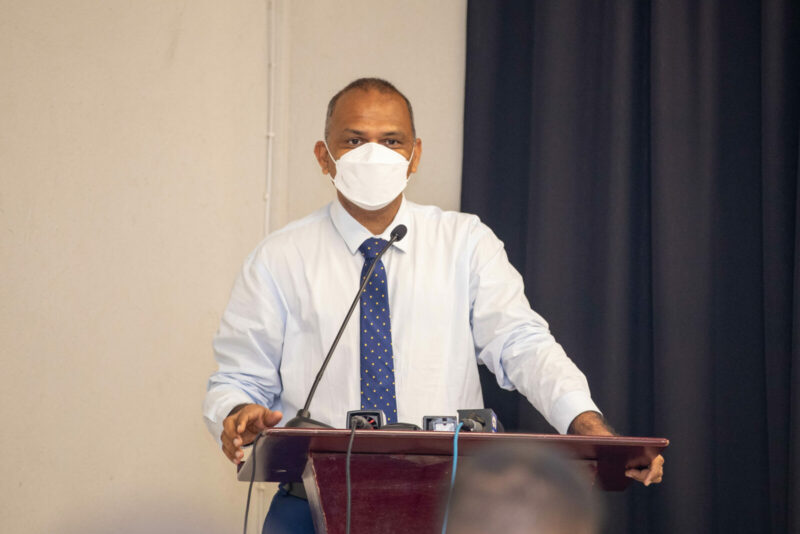Monkeypox vaccines are expected in Guyana by September month-end
Vaccines to treat the global health emergency virus, monkeypox, are expected to be in Guyana by the end of September, according to Health Minister Dr Frank Anthony.
The Health Minister during his health update on Wednesday said the procurement of the vaccines through the Pan-American Health Organization (PAHO) is ongoing.
Guyana confirmed its first monkeypox case, a 57-year-old man from Region Four (Demerara-Mahaica) at the weekend. The man is currently isolated at the infectious diseases hospital at Liliendaal, East Coast Demerara.
Dr Anthony explained that monkeypox vaccines are limited and that Guyana has made an order to ensure that persons exposed to the infection can be treated against the virus.
“We have placed an order with PAHO and we are expecting that we will get some of those vaccines by the end of September. So, persons who have been exposed to monkeypox can get vaccinated,” the Health Minister said.
He further noted that the monkeypox virus is similar to the smallpox virus and persons who have received the vaccine for smallpox are less likely to become infected with monkeypox.
“What has been shown, persons who are older than 40 more than likely might have received a vaccine for smallpox and if you had such a vaccine then it prevents you from getting monkeypox,” he said.
The smallpox vaccines are no longer manufactured. Bavarian Nordic is currently the only authorised company to produce the monkeypox vaccine.

Dr Anthony further noted that there is a range of services in place to treat infected persons. He explained that currently, the treatment is based on symptoms and signs the patient has.
He said, “We would isolate that patient to reduce spread, if the patient has some signs and symptoms, we would be treating that patient for signs or symptoms, so if you have a fever, we treat for the fever.”
In addition, he said infected persons would recover within 14 to 21 days of being infected.
He also warned of secondary diseases that persons infected with monkeypox might experience if bacteria infect the lesions.
“There are very few examples where they [infected persons] can develop complications and that is because of secondary bacterial infections so on top of the monkeypox they might have a bacteria invading the lesions that they have and creating an additional disease, so we have to be careful with that and when treating monkeypox,” Dr Anthony explained.
Importantly, he said that the COVID-19 hotline has been expanded to monkeypox as well. He said persons who want to get information about the virus, how it spreads and seek treatment can contact the hotline.
The hotline is toll free and there are numbers available for every region. Persons who want to call the hotline can visit https://www.health.gov.gy/.







